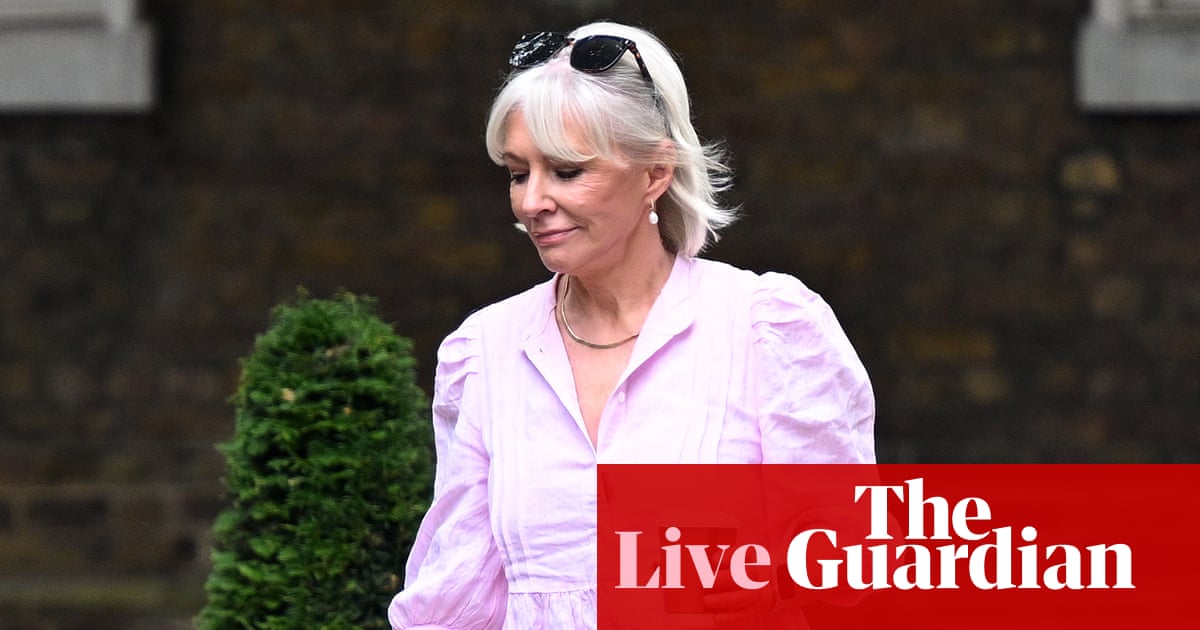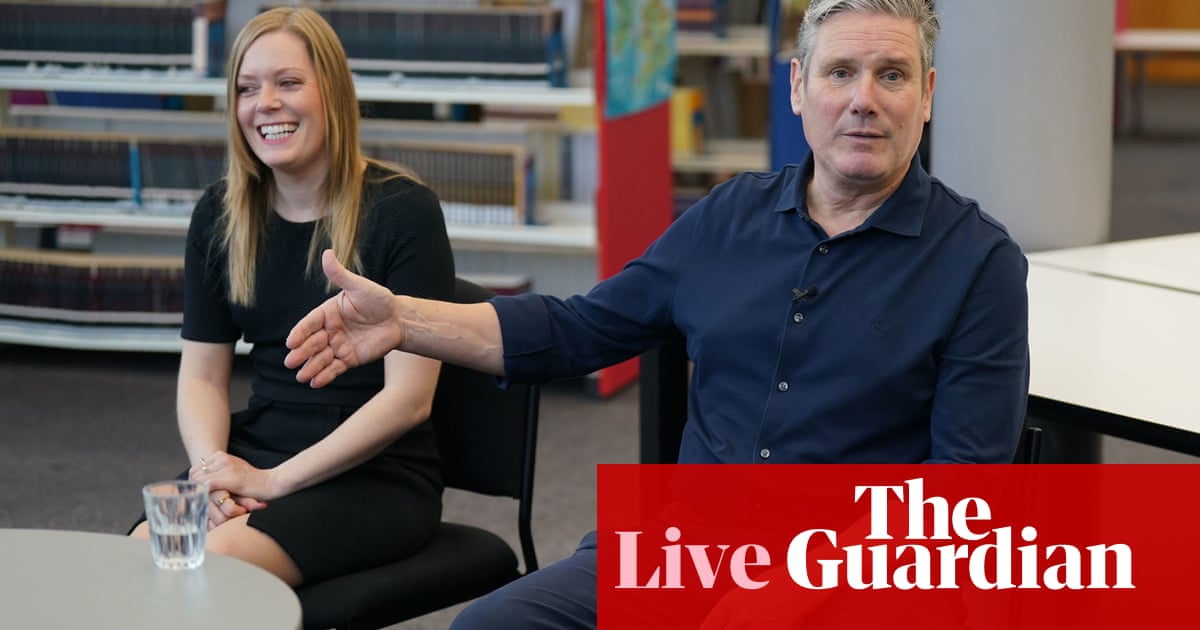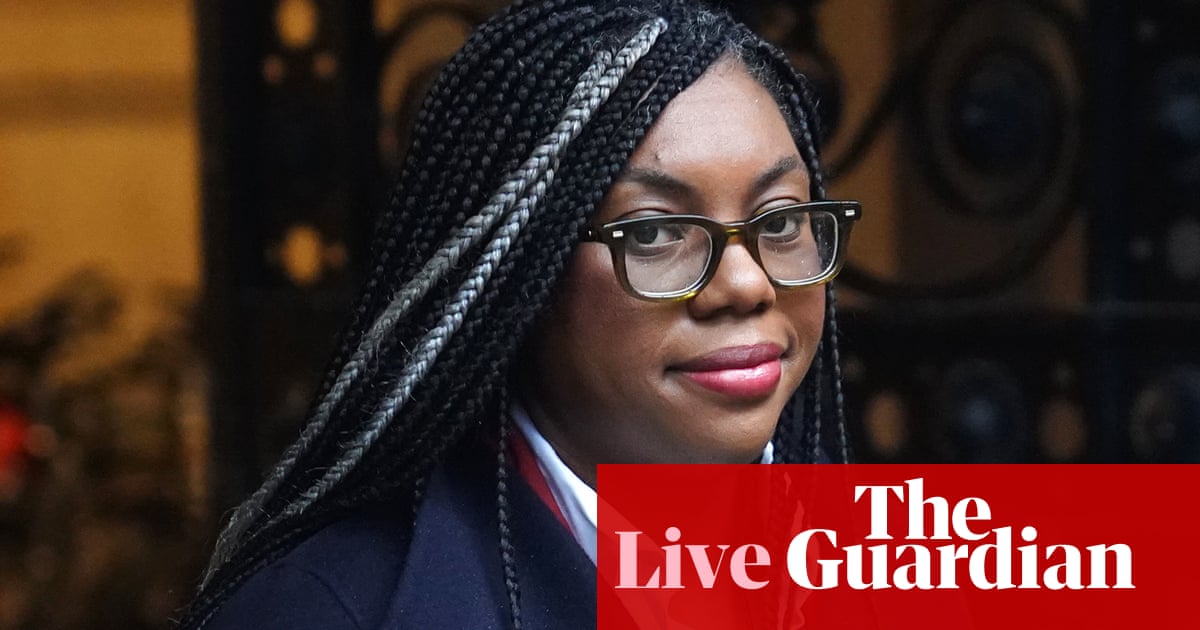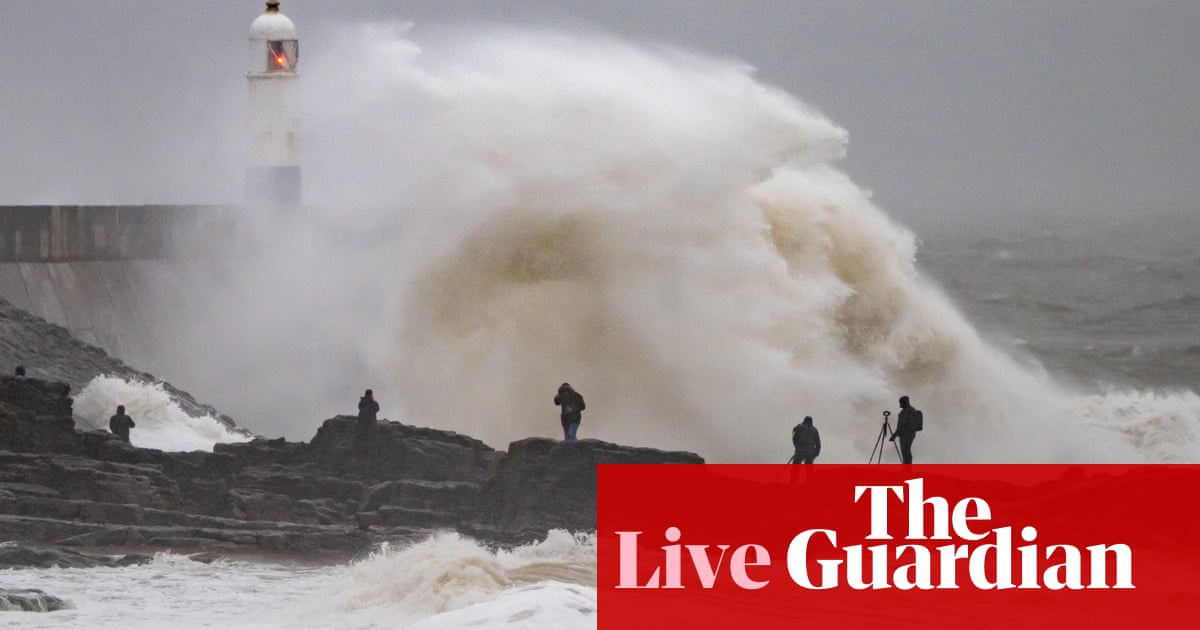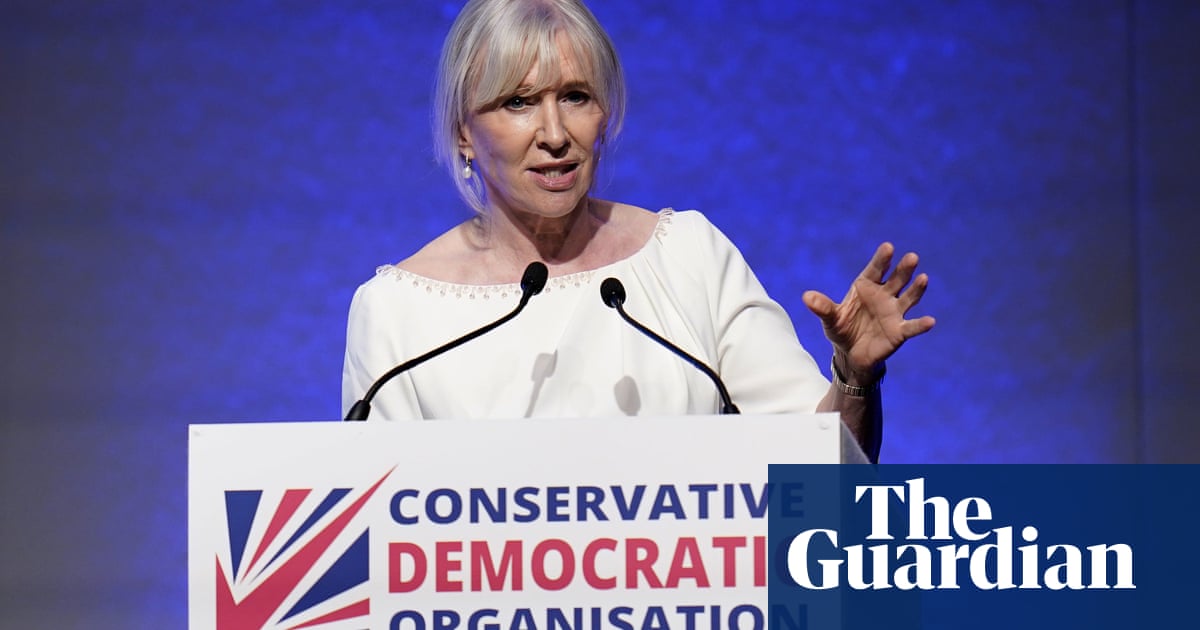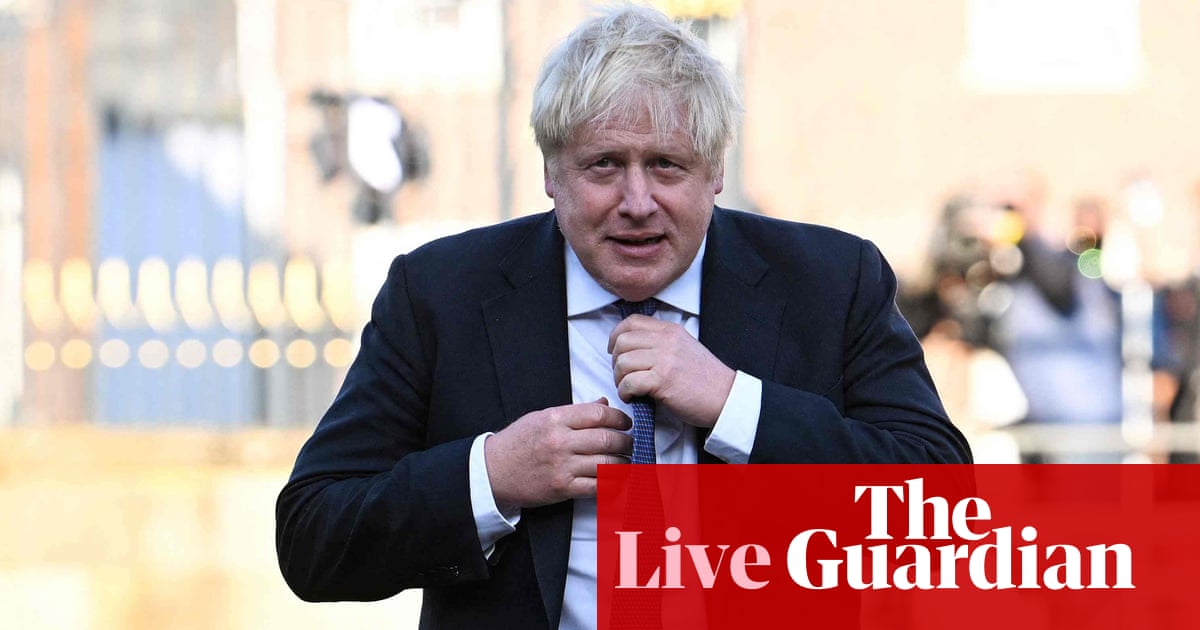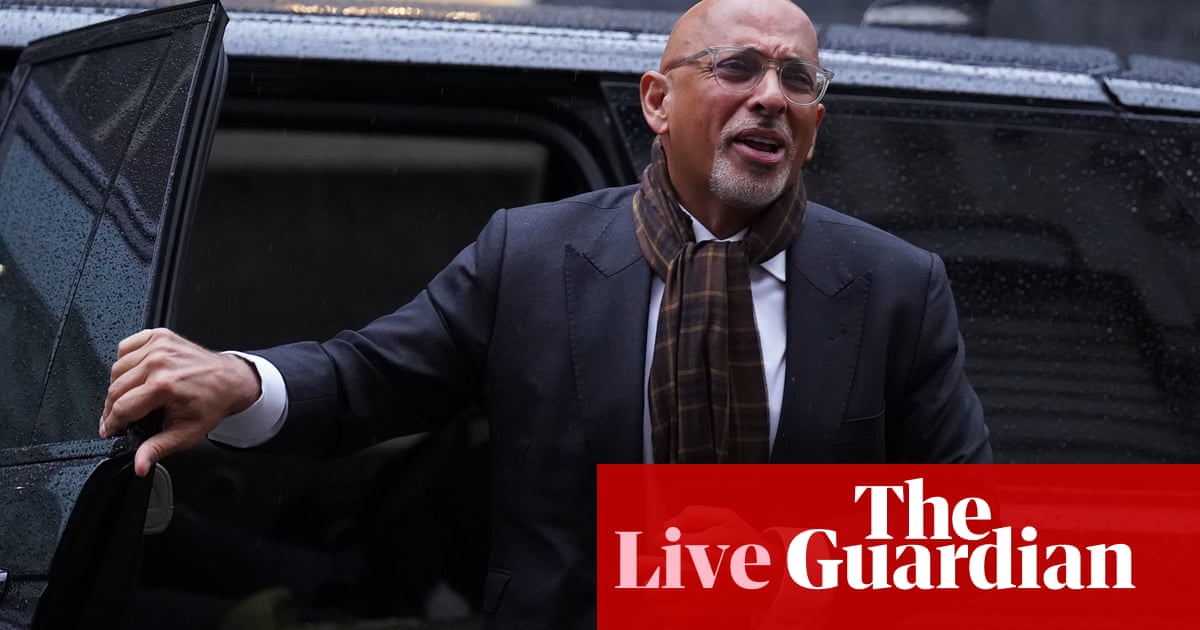
Dorries confirms licence fee being frozen for two years, saying she could not justify families having to pay more
Dorries says she has to make a licence fee recommendation under legislation.
She and her predecessor have held meetings with the BBC on this, she says. She has to consider the level of funding it needs.
She says the PM has called the BBC a great institution.
S4C also plays a critical role, she says.
However, in deciding on a settlement, she had to be realistic about the economic situation facing households.
Early evening summary
Nadine Dorries, the culture secretary, has signalled the government does not have an alternative funding model for the BBC in mind as it commits to a review of the licence fee. (See 4.59pm.) In a statement to MPs, she also hinted she may have gone further than intended when she said yesterday the licence fee was definitely being abandoned. Today she just said she could not see the review allowing it to continue. (See 5.23pm.) The BBC has described the parallel announcement that the licence fee will be frozen for two years as “disappointing”. (See 5.17pm.)
Dominic Cummings, the PM’s former chief adviser, says he is prepared to give evidence on oath proving Boris Johnson has been lying about the party held in Downing Street on 20 May 2020. (See 6.08pm.)
There is “massive anger” among grassroots Conservative party supporters over the Downing Street parties scandal, the head of a leading group has said as its survey found 40% thought Boris Johnson should resign.
Downing Street has said Boris and Carrie Johnson followed Covid guidance when the prime minister was “commuting” from Chequers to No 10 during the first lockdown in 2020 – but declined to answer further questions, including whether the pair held social events.
Nadhim Zahawi has denied the government is rushing out a series of policy ideas in an attempt to save Boris Johnson, arguing that the prime minister is safe in his job despite a string of Downing Street parties during lockdowns.
Cummings says he is willing to give evidence "under oath" PM has lied about 20 May drinks party
Dominic Cummings, Boris Johnson’s former chief adviser, was the first person to publicly reveal the fact that a drinks party took place at Downing Street on 20 May 2020. Boris Johnson attended and it was this that propelled partygate - already deeply damaging - into territory where it seems quite likely to be career-ending.
In an update this afternoon to a post on his Substack blog, Cummings says that he personally was one of the people who warned Johnson that the proposed party was a mistake. This is what he says, writing about 20 May 2020, which he says was a “pivotal day” at No 10 because big arguments were taking place about how it was run.
Amid discussion over the future of the cabinet secretary and PPS himself, which had been going on for days, I said to the PM something like: Martin’s [Martin Reynolds, Boris Johnson’s PPS] invited the building to a drinks party, this is what I’m talking about, you’ve got to grip this madhouse.
The PM waved it aside. I had told him repeatedly the PPS should be replaced, as had other competent officials who knew the whole structure needed a huge upgrade in personnel and management. ‘He’s MY guy, I don’t want you replacing him with YOUR person.’ (Yes, this says a lot.)
No 10 again denied this morning that Johnson did receive any warnings of this nature. (See 1.13pm.) Cummings says he and other witnesses would “swear under oath” Johnson is lying. He writes:
The events of 20 May alone, never mind the string of other events, mean the PM lied to parliament about parties.
Not only me but other eyewitnesses who discussed this at the time would swear under oath this is what happened.
Sonia Khan, who worked as an adviser in Downing Street when David Cameron and Theresa May were in office, told the World at One today that there was a drinking culture in the building. She said drinks were often used as a means of thanking people for working long hours. She said:
Usually these drinking sessions are sandwiched between pieces of work, so it feels like a very, very routine thing.
Drinks could start at lunch time, they could start a little bit later in the day - different teams do things very differently - but the idea of mini fridges or having drinks underneath your table wasn’t uncommon.
This prompted this tweet from Dominic Cummings, for whom no vendetta is too minor to keep pursuing.
Khan was sacked by Cummings, who had her escorted out of Downing Street by the police. She subsequently received a payoff after claiming unfair dismissal.
Chris Bryant (Lab) says £159 a year is a lot of money to his constituents. But he accuses Dorries of “crocodile tears” over this. If she was really worried about the cost of living, the government would not be putting up national insurance, which will cost his constituents almost exactly the same amount, he says. He accuses the government of dismantling one of the great British treasures.
Catherine McKinnell (Lab) asks for an assurance that Dorries is not seeking to undermine a great British institution just to save the PM’s skin. “I’m not,” Dorries replies.
Asked again about her tweet yesterday, Dorries says when she posted the message on Instagram she said this was “likely to be” the last licence fee annnouncement, not that it would definitely be the last one (as her tweet said). She says she cannot see how it will continue.
Dorries says she understands the importance of BBC World Service because she ran a school in Africa for a year, and used to listen to it then.
Kevan Jones (Lab) asks if the cabinet signed off on this, or if it was announced in a rush.
Dorries says the cabinet has signed off on this. She says she is legally obliged to make the announcement as early as possible, to give the BBC time to prepare.
BBC describes licence fee freeze as "disappointing" and says it will affect programming
The BBC says the licence fee freeze is “disappointing” and will impact on programming. In a statement its chairman, Richard Sharp, and its director general, Tim Davie, said:
A freeze in the first two years of this settlement means the BBC will now have to absorb inflation.
That is disappointing - not just for licence fee payers, but also for the cultural industries who rely on the BBC for the important work they do across the UK.
The BBC’s income for UK services is already 30% lower in real terms than it was 10 years ago. We will set out the implications of the settlement later, before the end of the financial year, but it will necessitate tougher choices which will impact licence fee-payers.
Valerie Vaz (Lab) asks Dorries if she agrees that 43p per day is value for money for the BBC.
Dorries says, if working families cannot afford the licence fee, they would not agree. For some people it is difficult to pay, she says.
John Redwood (Con) says non-payment of the licence fee should be decriminalised.
Dorries says this is being kept under review. But she questions whether it is right for people to be made to pay the licence fee under threat of prosecution.
John Whittingdale (Con), the former culture secretary, says although more and more young people say they do not watch the BBC, we will still need public service broadcasting. He says the debate about a future funding model should be about, not undermining it, but ensuring it can survive.
Dorries agrees that the question is not whether or not to have a BBC; it is how to fund it.
Here is the Department for Digital, Culture, Media and Sport’s news release about Dorries’s announcement.
Lloyd Russell-Moyle (Lab) says it was “reckless” of Dorries yesterday to say, in her tweet, the licence fee will definitely go when the government does not have an alternative model.
Dorries says the government has a lot of time to think about this.
In response to further questions on this, she says it is not for her to decide what the alternative model should be.
Dorries hints she no clear alternative to licence fee in mind yet
Damian Green (Con), the former first secretary of state, says the licence fee is something that “may not work in theory, but works really well in practice”. He asks if the government has a strong alternative model in mind. If it doesn’t, it should keep the licence fee for the next charter period (from 2028 to 2038).
Dorries says the government has six years to find one.





